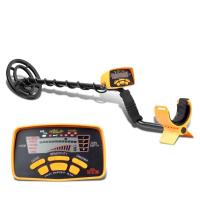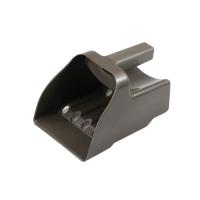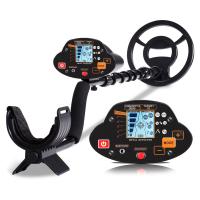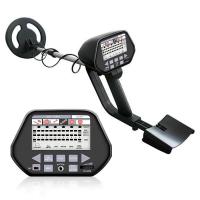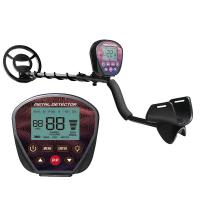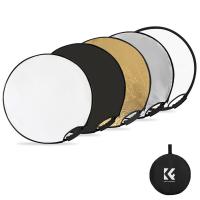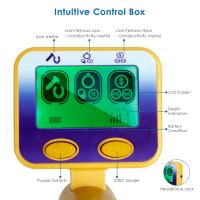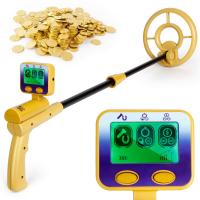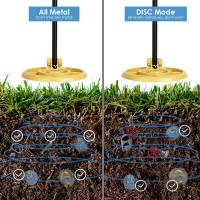Can Metal Detectors Detect Gold?
Metal detectors are fascinating devices that have captured the imagination of treasure hunters, security personnel, and hobbyists alike. One of the most common questions that arise in the context of metal detecting is whether these devices can detect gold. The short answer is yes, metal detectors can detect gold, but the effectiveness depends on several factors including the type of metal detector, the size and purity of the gold, and the environmental conditions. In this article, we will delve into the intricacies of how metal detectors work, the types of metal detectors best suited for gold detection, and practical tips for optimizing your gold-hunting endeavors.
How Metal Detectors Work

To understand how metal detectors can detect gold, it's essential to grasp the basic principles behind their operation. Metal detectors work by emitting an electromagnetic field from the search coil into the ground. When this field encounters a metallic object, it induces an electric current in the object, which in turn generates its own electromagnetic field. The detector's coil senses this secondary field and sends a signal to the control box, alerting the user to the presence of metal.
Types of Metal Detectors

There are several types of metal detectors, each with its own strengths and weaknesses when it comes to detecting gold.
Very Low Frequency (VLF) Detectors
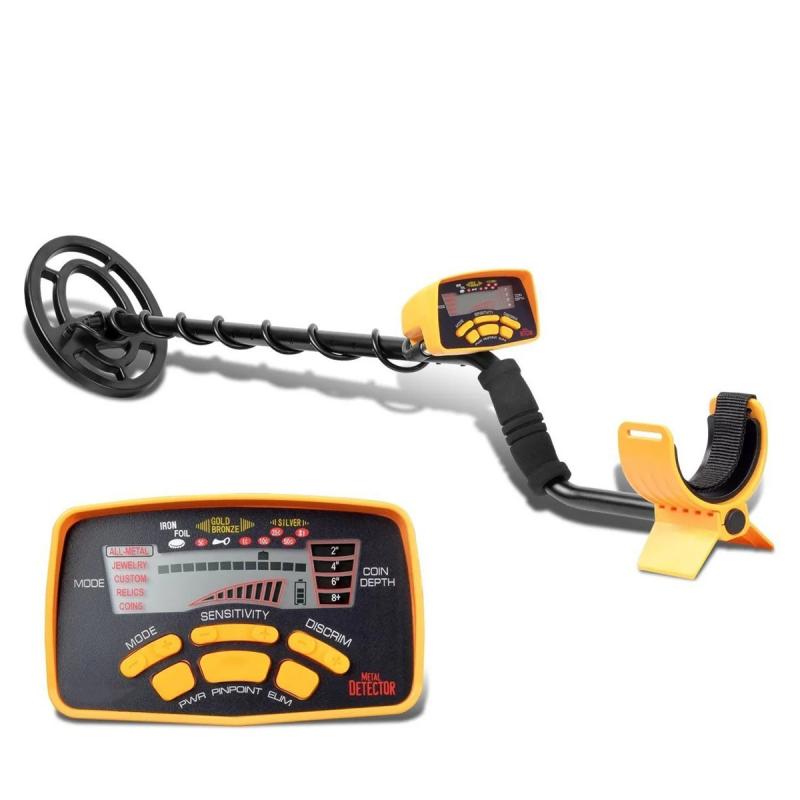
VLF detectors are the most common type of metal detectors and are widely used for general-purpose metal detecting. They operate at frequencies between 3 kHz and 30 kHz. VLF detectors are excellent at discriminating between different types of metals, making them useful for finding coins, relics, and jewelry. However, their effectiveness in detecting gold can be limited, especially if the gold is small or located in highly mineralized soil.
Pulse Induction (PI) Detectors

PI detectors are less common but are highly effective for gold prospecting. They operate by sending short bursts of current through the coil, creating a magnetic field. When the pulse ends, the magnetic field reverses polarity and collapses, causing a sharp electrical spike. This spike can detect metal objects, including gold, even in highly mineralized soil. PI detectors are less effective at discriminating between different types of metals but excel in depth and sensitivity, making them ideal for gold hunting.
Multi-Frequency Detectors
Multi-frequency detectors can operate at multiple frequencies simultaneously, offering a balance between the strengths of VLF and PI detectors. They are versatile and can be used for a variety of metal detecting activities, including gold prospecting. These detectors are particularly useful in areas with varying soil conditions and can provide more accurate readings.
Factors Affecting Gold Detection
Several factors can influence the effectiveness of a metal detector in finding gold.
Size and Purity of Gold
The size and purity of the gold object play a significant role in its detectability. Larger gold nuggets are easier to detect than smaller flakes or fine gold. Similarly, pure gold is more conductive and easier to detect than gold alloys mixed with other metals.
Soil Mineralization
Soil mineralization refers to the presence of naturally occurring minerals in the ground, which can interfere with the electromagnetic field emitted by the metal detector. Highly mineralized soil can create false signals and make it challenging to detect gold. PI detectors are generally better suited for highly mineralized soils, while VLF detectors may struggle.
Depth
The depth at which the gold is buried also affects its detectability. Most metal detectors have a limited depth range, and the deeper the gold, the harder it is to detect. PI detectors typically offer greater depth capabilities compared to VLF detectors.
Environmental Conditions
Environmental factors such as moisture, temperature, and ground composition can also impact the performance of a metal detector. Wet soil, for example, can enhance the conductivity of metals, making them easier to detect. Conversely, extremely dry or rocky soil can pose challenges.
Practical Tips for Gold Detection
If you're serious about finding gold with a metal detector, here are some practical tips to enhance your chances of success.
Choose the Right Detector
Selecting the appropriate metal detector for gold prospecting is crucial. If you're hunting in highly mineralized soil, a PI detector may be your best bet. For general-purpose detecting with occasional gold hunting, a multi-frequency detector can offer versatility.
Adjust Settings
Most modern metal detectors come with adjustable settings that allow you to fine-tune the device for specific conditions. Sensitivity, ground balance, and discrimination settings can all be adjusted to optimize gold detection. Experiment with these settings to find the best configuration for your environment.
Research Locations
Gold is often found in specific geological formations, such as riverbeds, old mining sites, and areas with a history of gold deposits. Conduct thorough research to identify promising locations for gold prospecting. Historical records, geological surveys, and local knowledge can provide valuable insights.
Practice Patience
Gold prospecting with a metal detector requires patience and persistence. It's not uncommon to spend hours or even days without finding any gold. Stay motivated and keep refining your techniques. The more you practice, the better you'll become at interpreting signals and identifying potential gold targets.
Use Proper Techniques
Proper search techniques can significantly impact your success rate. Sweep the detector's coil slowly and methodically, maintaining a consistent height above the ground. Overlapping your sweeps ensures that you cover the area thoroughly. Pay attention to faint signals, as small gold nuggets can produce weak responses.
In conclusion, metal detectors can indeed detect gold, but their effectiveness depends on various factors such as the type of detector, the size and purity of the gold, and the environmental conditions. By understanding how metal detectors work and choosing the right equipment, you can enhance your chances of finding gold. Remember to adjust your detector's settings, research promising locations, and practice patience and proper techniques. With dedication and persistence, you may uncover hidden treasures and experience the thrill of gold prospecting.

